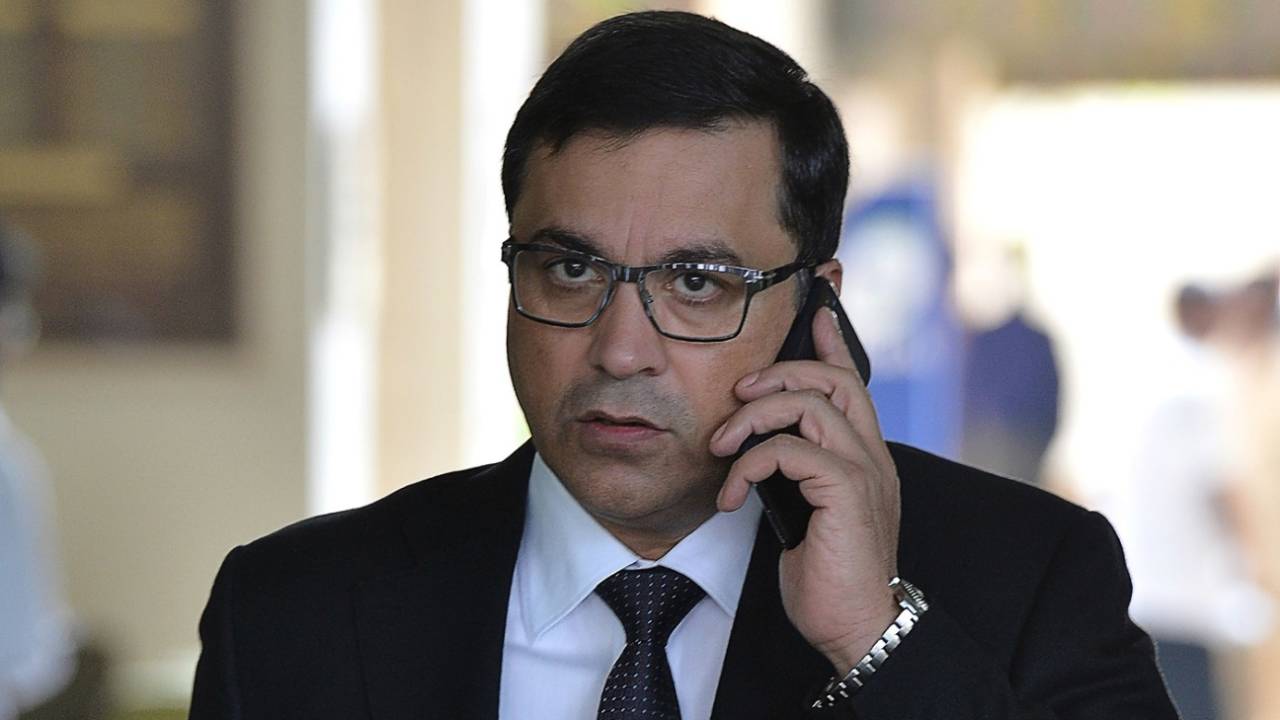BCCI agrees to come under NADA ambit
Rahul Johri says the board has to follow the 'law of the land', and that NADA has given the BCCI assurances about the concerns it had raised
ESPNcricinfo staff
Aug 9, 2019, 11:39 AM
BCCI CEO Rahul Johri arrives for a meeting • Getty Images
The BCCI has agreed to come under the ambit of the National Anti-Doping Agency (NADA) after years of resisting the move.
The decision came after BCCI chief executive Rahul Johri and general manager (cricket operations) Saba Karim met sports secretary Radheshyam Jhulaniya and NADA director general Navin Agarwal in New Delhi on Friday. The meeting took place after the sports ministry of India wrote a strongly worded letter to the BCCI in the wake of Prithvi Shaw's positive drug test and backdated suspension of eight months.
"We have to follow the law of the land and the BCCI is committed to following the law that exists," Johri was quoted as saying by Press Trust of India after the meeting. "The letter which we have signed states that we accept the law of the land."
Asked whether the Committee of Administrators (CoA) was mandated to take such a decision in the absence of an elected general body, Johri said, "Whoever is in existence, the law of the land is there. So you and I can't choose at what time to follow the law of the land."
The BCCI had been staunchly opposed to coming under NADA's ambit for several years, consistently arguing that it is an autonomous organisation and not a national sports federation, and is therefore not under NADA's jurisdiction. In November 2017, Johri had said the BCCI's anti-doping mechanism was "robust" and rejected the need for NADA to test cricketers.
However, on Friday, Johri said that while the BCCI did raise a number of concerns, it had agreed to come under NADA after the sports ministry gave assurances about resolving whatever issues the cricket board had.
"We have raised a lot of concerns, we have listed them out and they have agreed to address all these," he said.
The BCCI's primary concern with coming under NADA was the contentious whereabouts clause that deals with out-of-competition testing. The clause has been regarded as an invasion of privacy and a potential threat to the security of the high-profile cricketers.
Johri, however, said "don't jump the gun" when he was asked about the clause, which requires every athlete to fill a declaration form mentioning three specific dates in a year when they are not competing but are available to NADA's dope-control officer for sample collection.
If any athlete fails to appear on all the specified dates, it invites sanctions for breach of the World Anti-Doping Agency Code. Such a breach had led to the West Indies allrounder Andre Russell being banned for a year.
"The BCCI raised three issues before us about the quality of the dope testing kits, competence of pathologists and sample collection. We assured them that whatever facilities they want, we will provide but there will be some charge for it," Jhulaniya said. "But that higher facility will be equal for all national sporting federations. BCCI is no different from others. They have to follow the law of the land."
The BCCI also agreed to bear the differential cost arising from the high-quality testing methods.
"That is okay (bearing the cost), that is not the issue right now," Johri said. "We have said to them that we want a certain level of service for our players. If there is any differential then the BCCI will agree to pay for it."
There are speculations that the sports ministry pressured the BCCI to come under the ambit of NADA after holding back clearances for the South Africa A and women teams' upcoming tours to India, but Johri rubbished that claim. "These two are separate issues," he said. "The tours have already been cleared."
